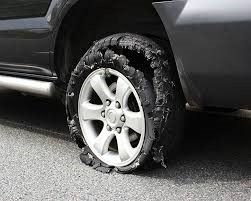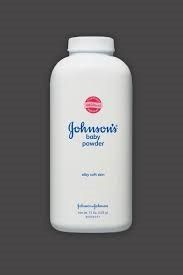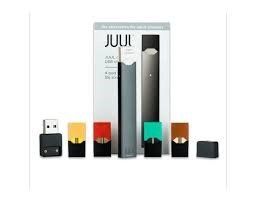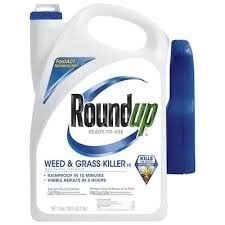PRODUCTS LIABILITY
Product Liability
Have you or a loved one ever experienced:
- Death or serious injury at work?
- Death or serious injury from a single vehicle accident?
- Serious injury from an airbag?
- Death or serious injury caused by a product?
- Death or serious injury in an accident?
- Death or serious injury while residing in a nursing home?
- Ovarian cancer after using talcum powder products?
- Death from Opioid addiction?
- Under age 25 and Addicted or injured from a JUUL vaping device?
- Kidney injury from Nexium, Prilosec or Prevacid use?
- Injury from implantation of Physiomesh during hernia repair surgery?
- Insurance fraud?
- Sexual harassment in your workplace?
- Non-Hodgkins Lymphoma after use of Roundup weed killer?
- Mesothelioma from asbestos exposure?
- Leukemia after exposure to Benzene?
Our office is currently working with a network of products liability attorneys on the following cases. If any of these cases apply to you, please immediately contact us for a complimentary case evaluation. If accepted, these matters are pursued on a contingency fee, which means there is no fee unless we collect for you.
Boeing Litigation
– If you or a loved one were involved in either of the two Boeing 737 crashes that have
received tremendous public interest and concern, please contact us.
Aviation Accidents
– Aviation litigation can be extremely complex and often involves determining the respective liability of manufacturers, maintainers, retrofitters, dispatchers, pilots and others. In some circumstances, the age of the aircraft involved can limit or completely preclude an injured party from compensation. Soaring through the sky hundreds of miles an hour, thousands of feet above the ground in an airplane or helicopter leaves little room for error. One small mechanical problem, misjudgment or faulty response in the air can spell disaster for air passengers and even unsuspecting people on the ground. If you or a loved one have been injured in an aviation accident, please contact us.
Product Liability
– We will review any case involving catastrophic injury or death involving automobiles (single or multi vehicle crashes), heavy equipment and consumer products.
Truck Accidents
– There are significant differences between handling an interstate trucking case and other car wreck cases. It is imperative to have knowledge of the Federal Motor Carrier Safety Regulations, technology, business practices, insurance coverages, and to have the ability to discover written and electronic records. Expert testimony is of utmost importance. Accidents involving semi-trucks and passenger vehicles often result in serious injuries and wrongful death. Trucking companies and their insurance companies almost always quickly send accident investigators to the scene of a truck accident to begin working to limit their liability in these situations. Our team and / or associated law firm(s) can send accident investigators and immediately begin the important task of documenting and preserving the evidence. We review any truck accident case involving catastrophic injury or death.
Heavy Truck Product Liability Claims
– Tractor trailer and other heavy trucks are not required to contain many of the same protections for occupants as smaller passenger cars. They can contain dangerous defects putting the truck driver or passengers at risk of serious injury or death. These trucks many times have particularly weak roofs that crush in rollovers. The passenger compartments are often not protected by effective cab guards, and this allows loads to shift into the truck cab. We would like to review any case involving catastrophic injury or death involving a truck driver.
Defective Tires
– Tire failure can result in a serious car crash and even a vehicle rollover accident, causing serious injury or death to vehicle occupants. Air, heat and sunlight can cause the rubber in tires to break down. When a tire is defective, potentially serious problems like detreads and blowouts can occur long before the tire would be expected to wear out. If the tire failure is the result of design or manufacturing defects, and the manufacturer is aware of the problem, they have an obligation to alert consumers to the potential danger.
On-the-job Product Liability
– We are investigating on the job, catastrophic injuries that were cause by a defective machine, tool or device on work premises.
Premises Liability
– In premises liability claims, patrons of establishments are often injured because the premises, for some reason, was unsafe. Premises liability claims can take many forms, including when severe injury or death results when a building or structure collapses, merchandise falls, during swimming pool accidents, due to poor lighting, falling debris, unsecured fixtures and furniture that falls or tips over, unsecure drainage that creates drowning or fall hazards, slippery surfaces, and inadequate maintenance. We would like to investigate any cases where severe injury or death results.
Negligent Security
– Under the law, owners of establishments owe a duty to patrons and guests to ensure that the premises are reasonably safe and secure from anticipated dangers. These cases normally take the form of shootings, fights, stabbings, or other physical violence (including sexual assault) where severe injury or death occurs due to the establishment owner’s failure to take reasonable safety measures. When this occurs, the establishment owner, as well as those contractors charged with security, may be held responsible for the injuries suffered by individuals or groups of individuals on the premises. We may be able to help where severe injury or death results.
Nursing Home Abuse and Neglect
– Nursing homes are supposed to be in the business of providing skilled nursing care to elderly and disabled residents. Unfortunately, statistics indicate residents in nursing homes suffer abuse and neglect more and more frequently at the hands of nursing home corporations. In many cases residents have died or have been severely abused as a result of neglect. They may suffer physical abuse, emotional or psychological abuse, or neglect. We are investigating cases involving serious injury or death resulting from nursing home abuse or neglect
Pharma & Devices
Talcum powder and ovarian cancer
- As many as 2,200 cases of ovarian cancer diagnosed each year may have been caused by regular use of talcum powder. Talc is a mineral made of up various elements including magnesium, silicon and oxygen. Talc is ground to make talcum powder which is used to absorb moisture and is widely available in various products including baby powder and adult products including body and facial powder. Talc products used regularly in the genital area increase the risk of ovarian cancer. In February 2016, a jury found Johnson & Johnson knew of the cancer risks associated with its talc products but failed to warn consumers and awarded the family of our client $72 million. She died of ovarian cancer after using J&J talc-containing products for more than 30 years. This case was the start of the litigation that followed. If you or a loved one and used talcum powder and developed ovarian cancer as a result, please contact us
JUUL vaping devices
- The use of JUUL and other vaping devices has reached epidemic levels, especially among teenagers and young adults. JUUL and other vape device manufacturers fueled this epidemic by targeting and deceiving youth and adolescents with misleading social media marketing and sweet, fruit-flavored pods containing high levels of nicotine. Use of these products has been associated with numerous adverse health effects, such as seizures, nicotine addiction, nicotine poisoning, breathing problems, behavioral and psychological problems, and other serious health conditions.
Defective Bone Cement
- The type of bone cement used during knee replacement surgery affects the outcome of that surgery. High viscosity bone cement (HVC) boasts shorter mixing and waiting times and longer working and hardening phases, meaning surgeons can handle and apply the cement earlier than with low- or medium-viscosity cements. Although HVC may be more convenient to use, there is mounting evidence that the bond it produces is not as strong. Researchers have observed more early failures with the use of HVC, even when used in combination with a previously well-performing implant. Complications associated with knee replacements performed with HVC include loosening and debonding (where the implant fails to adhere to the cement interface on the shin or thigh bone), which requires revision surgery. Other reported problems include new onset chronic pain and instability.
Metal-on-Metal Hip Replacement parts
– The FDA has ordered a review of all metal-on-metal hip implants due to mounting patient complaints. Problems with metal-on-metal include, but are not limited to loosening, metallosis (ie: tissue or bone death), fracturing, and/or corrosion and fretting of these devices, which require revision surgery. Many patients that require revision surgery due to these devices suffer significant post-revision complications. We are investigating all cases involving metal-on-metal hip implants, including the DePuy Orthopaedics ASR XL Acetabular System and the DePuy ASR Hip Resurfacing System, recalled in August 2010; the Stryker Rejuvenate and ABG II modular-neck stems, recalled in July 2012; the Stryker LFIT Anatomic v40 Femoral Head (recalled August 29, 2016); the Zimmer Durom Cup, and the Biomet M2A “38mm” and M2A-Magnum hip replacement systems, which have not been recalled. Reported problems include pain, swelling and problems walking.
IVC Filters
– Retrievable IVC filters are wire devices implanted in the vena cava, the body’s largest vein, to stop blood clots from reaching the heart and lungs. These devices are used when blood thinners are not an option. Manufacturers include Bard, Cook and Johnson & Johnson. While permanent IVC filters have been used since the 1960s with almost no reports of failure, retrievable IVC filters were introduced in 2003, promoted for use in bariatric surgery, trauma surgery and orthopedic surgery. Risks associated with the retrievable IVC filters include migration, fracture and perforation, leading to embolism, organ damage and wrongful death.
Zofran
– Manufactured by GlaxoSmithKline, Zofran (ondansetron) was approved to treat nausea during chemotherapy and following surgery. Zofran (ondansetron) works by blocking serotonin in the areas of the brain that trigger nausea and vomiting. Between 2002 and 2004, GSK began promoting Zofran off-label for the treatment of morning sickness during pregnancy, despite the fact the drug has not been approved for pregnant women and there have been no well controlled studies in pregnant women. The FDA has received nearly 500 reports of birth defects linked to Zofran. Birth defect risks include cleft palate and septal heart defects.
Physiomesh
- Intended for hernia repair, Physiomesh is a flexible polypropylene mesh designed to reinforce the abdominal wall, preventing future hernias from occurring. Though there are several types of hernias, most occur when an organ or tissue protrudes through a weak spot in abdominal muscles. The condition often requires surgery where mesh, like Physiomesh, which is intended for laparoscopic use, is used to fill in a hole in the abdominal muscle or laid over or under it to prevent any further protrusions. Independent studies have found Physiomesh to lead to high rates of complications including hernia reoccurrence, organ perforation, mesh migration, sepsis and even death. In May 2016, Ethicon issued a market withdrawal of Physiomesh in the U.S. and recalled the product in Europe and Australia. We are currently investigating cases involving serious injury or death as a result of Ethicon’s Physiomesh.
Opioids
– Opioid abuse has reached epidemic proportions in the United States. According to the Department of Health & Human Services, 12.5 million people misused prescription opioids and 33,091 Americans died from opioid overdose in 2015 alone. These medications provide important pain relief for many. However, over the years, drug companies inflated the effectiveness of delayed-release medications like OxyContin and downplayed their addictive properties, creating conditions ripe for abuse. We are investigating cases involving opioid-related deaths and overdose requiring hospitalization, as well as cases involving treatment for addiction to prescription opioids.
Opioids and Infants
– The opioid epidemic has also taken its toll on the most vulnerable among us. According to the National Institute on Drug Abuse, every 25 minutes, a baby is born addicted to opioids – a condition called Neonatal Abstinence Syndrome (NAS). Babies with NAS suffer painful symptoms of opioid withdrawal in the hours and days after they are born and are more likely to suffer long-term complications like developmental delays and hearing or vision impairment, compared to babies born to mothers who did not use opioids. We are investigating cases on behalf of children who were born with NAS after their mothers were prescribed opioids before or during pregnancy.
Fraud
False Claims Act / Whistleblower- We are investigating whistleblower claims of government fraud ranging from Medicare/Medicaid to military contracts, and any other type of fraud involving a government contract. Under the False Claims Act (FCA) the whistleblower is entitled to a percentage of the recovery. Studies show that as much as 10 percent of Medicare/Medicaid charges are fraudulent. Common schemes involve double-billing for the same service, inaccurately coding services, and billing for services not performed. Additionally, the Commission on Wartime Contracting has warned that the lack of oversight of government contractors has led to massive fraud and waste.
Toxic Torts
Roundup / glyphosate
- Roundup is the most widely used herbicide in the world and the second-most used weed killer for home and garden, government and industry, and commerce. It was introduced commercially by Monsanto Company in 1974 and is used by landscapers, farmers, groundskeepers, and commercial gardeners. The primary ingredient in Roundup is glyphosate, a chemical that kills weeds by blocking proteins essential to plant growth. It has been linked to a type of cancer called non-Hodgkin lymphoma. We are investigating cases involving non-Hodgkin lymphoma related to the commercial application of Roundup/glyphosate.
Mesothelioma and asbestos-related diseases
– Mesothelioma is a highly aggressive and rare form of cancer usually affecting the lining of the lungs (pleural) or abdominal cavity (peritoneal). Occasionally, it also may affect the lining of the heart (pericardial). The only known cause of mesothelioma is exposure to asbestos. About 2,000 new cases of mesothelioma are diagnosed in the United States each year. For years, asbestos was widely used in many industrial products and in building construction for insulation and fire protection. When asbestos is broken or disturbed it can release microscopic fibers that can be inhaled or ingested, posing a health risk, including the development of asbestos diseases and mesothelioma.
Defective 3M Earplugs
– We are investigating claims related to defective combat earplugs manufactured by Minnesota-based 3M Company. The earplugs were issued to thousands of military personnel serving in combat in Iraq and Afghanistan and used in training exercises in the United States. Numerous soldiers are now complaining of permanent hearing loss related to the defective ear plugs. Other soldiers have complained of tinnitus, commonly referred to as “ringing” in the ears. The dual-sided earplugs allegedly were improperly designed and manufactured so that the earplugs did not fit snugly in the wearer’s ear canal.
E-cigarette Explosions
– We are investigating cases involving severe injuries caused by exploding e-cigarette devices and exploding e-cigarette batteries. These explosions have been linked to faulty e-cigarette products, defective lithium-ion batteries, and insufficient warnings for users. These cases involve personal injury including serious burn injuries. Please contact us for assistance with cases you may have involving these devices.
Our Location
338 Fairhope AvSuite 210Fairhope, AL 36532
Get in touch(251) 928-0192
© 2013 Law Office James Dorgan, P.C.
Alabama State Bar Rules require the following in every attorney's advertisement: "No representation is made that the quality of the legal services to be performed is greater than the quality of legal services to be performed by other attorneys." Our entire firm protects the confidentiality of client information. Florida requires the following for their attorney advertisements: "The hiring of a lawyer is an important decision that should not be solely based upon advertisements. Before you decide, ask us to send you free written information about our qualifications and experience ."





